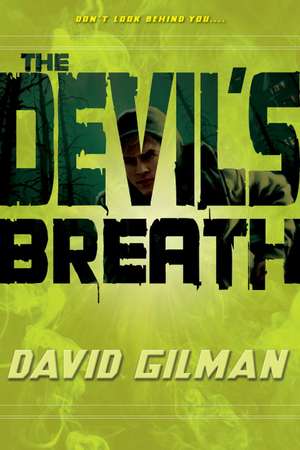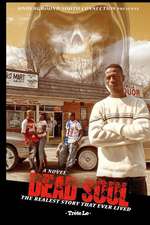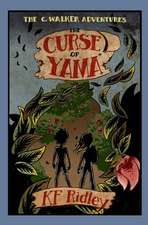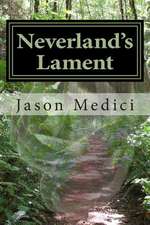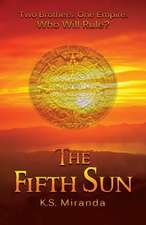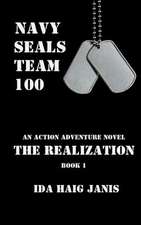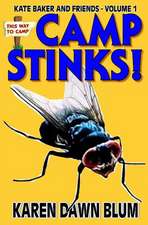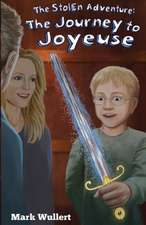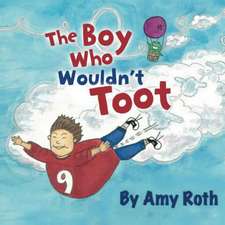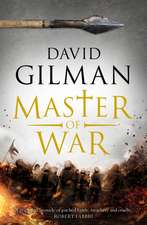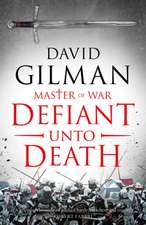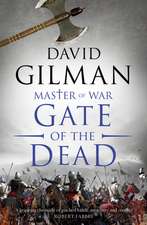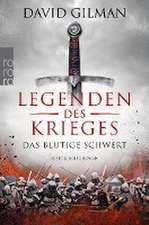The Devil's Breath: Danger Zone (Quality), cartea 01
Autor David Gilmanen Limba Engleză Paperback – 28 feb 2010 – vârsta de la 11 până la 15 ani
After learning that his explorer father is missing, Max is determined to find him, no matter what dangers may lay in his path. A secret clue his father left behind leads Max to the inhospitable wilderness of Namibia, where he soon discovers a potentially massive ecological disaster masterminded by Shaka Chang, a very powerful and completely ruthless man—a man Max fears may have put his father in mortal danger. Max needs all the help he can get. Because whoever is behind his father’s disappearance is determined to get rid of Max, too. For good.
From the Hardcover edition.
Preț: 89.70 lei
Nou
Puncte Express: 135
Preț estimativ în valută:
17.16€ • 18.70$ • 14.46£
17.16€ • 18.70$ • 14.46£
Carte disponibilă
Livrare economică 02-16 aprilie
Preluare comenzi: 021 569.72.76
Specificații
ISBN-13: 9780440422396
ISBN-10: 0440422396
Pagini: 391
Dimensiuni: 141 x 202 x 22 mm
Greutate: 0.3 kg
Ediția:American.
Editura: Delacorte Press Books for Young Readers
Seria Danger Zone (Quality)
ISBN-10: 0440422396
Pagini: 391
Dimensiuni: 141 x 202 x 22 mm
Greutate: 0.3 kg
Ediția:American.
Editura: Delacorte Press Books for Young Readers
Seria Danger Zone (Quality)
Extras
1
The killer, like many assassins, came in the night.
The distant, echoing boom of gunfire and the lazy but deadly arc of machine guns’ tracer rounds seeking out their target across the windswept countryside would help hide his presence. And tonight would be one of his easiest assignments. His victim was a fifteen-year-old boy.
He checked his watch. His timing was good. He was in position. First choice: make it look like an accident—a broken neck. Second choice: a shot to the head and dispose of the body. It made no difference to him. The wind had veered from the east to the north—there was a colder bite to it and he thought of the soldiers lying out there on the waterlogged ground. They would not have slept for days and, with almost constant gunfire and the demands of patrolling, exhaustion and the cold would have eaten into them.
The steady chattering of the soldiers’ machine guns, a couple of kilometers away, was a comfort to him, the staccato rhythm like music to his ears. The ground-sucking crump of mortar fire and the thud of distant artillery blended in his senses. Some of his happiest days as a soldier had been spent killing, but now he offered a more personal service in his lucrative trade of murder. He was being paid impressive money for this job—so, whoever this kid was, someone badly wanted him dead. He checked his watch again, and then eased a 9mm semiautomatic pistol from his waistband—better to have it ready.
Out in the darkness, a few minutes away from where the killer waited, fifteen-year-old Max Gordon jogged along the thin strip of tarmac. His dad had been right in sending him to school here; these past three years had built up his strength and agility, and he’d decided to enter one of the junior triathlon contests: extreme sports were the real test of nerve and skill. Next year there would be a Junior X-treme Competition in the French Pyrenees and Max wanted to compete in the downhill mountain-bike race, snowboarding and wildwater kayaking—every one a big adrenaline rush. He knew it was ambitious, but he had the stamina and physical strength now. These extra late-night training runs were paying off. Although it was nearly pitch black, especially when the North Atlantic weather fronts roared in from the coast, there was always enough ambient light to see the tarmac ribbon guiding him around the dinosaur-like boulders.
His breathing settled as he locked into a perfect pace. Across the landscape firepower crisscrossed the night. Explosions were much further away and parachute flares jigged ineffectively in the sky as the buffeting wind swept them away. But he was safe where he was. The commandos and paratroopers were in a designated training area and were no threat to him here. Another four kilometers on the loop back and he’d turn for home, have a hot shower and then bed.
Then he heard a sound that didn’t belong. Instincts focused his senses. A soft metallic click—about twenty meters ahead. There was a curved bowl worn away into the hillside, probably made by animals seeking shelter over the years, and that was where the noise had come from. Max knew there shouldn’t be any soldiers about here and caution slowed his pace. The wind had shifted slightly, to dead ahead, and that was why he had heard the noise. Like a car door being pressed gently closed. Or an automatic pistol being cocked.
In less time than it took to think, he veered off the road and into the gorse, putting on a turn of speed and feeling the needle-sharp foliage scratching his legs. Just as he glanced back, a shadow moved from behind a sheltering boulder and then disappeared again. Whoever was out there knew what he was doing, and there was no doubt in Max’s mind that the shadow was after him.
He pounded across the dangerously uneven ground, risking a twisted ankle. A fall would put him at the mercy of whoever was chasing him, but he had no choice—he needed to put distance between himself and his pursuer. Arms pumping, eyes streaming with tears from the cold, he glanced around and saw the blurred shadow coming at an angle towards him. Max was heading straight into the military danger zone—the terrifying crackle of gunfire ahead of him was louder than he’d ever heard it before and the lethal stream of bullets scythed across the sky; he ducked instinctively from the ripped air above his head.
Another quick look over his shoulder told him that the shadow had gone, but then Max lost his footing. Stumbling, he fell; his arm scraped granite and flint, and the raw pain made him yelp. He rolled and scrambled to his feet again—but now in almost complete darkness. The machine-gun firing had stopped; the artillery and mortars had fallen silent. He was running into a black void where the low, ground-hugging fug of smoke stung his eyes and the acrid taste of cordite burned the back of his throat. It was like the aftermath of a massive fireworks display—except these fireworks could rip you apart. He realized, too late, that he’d under- estimated the shadow pursuing him. He thought he could outrun him but the man had cut behind him, keeping himself out of sight, and Max could still hear the thump of his feet, getting closer now. Desperation powered him on, his feet came free of the gorse and found a scratch of track through the bracken. Sucking in as much air as his lungs could bear, he ran blindly onwards. The whiplash of a bullet cracked past his ear, followed almost immediately by the sound of the gunshot from behind him. No doubt now—his pursuer was out to kill. Max felt his legs give a little, but that was the ground falling away into a dip. And the man behind him was getting closer, homing right in on his target like a heat-seeking missile.
From the Hardcover edition.
The killer, like many assassins, came in the night.
The distant, echoing boom of gunfire and the lazy but deadly arc of machine guns’ tracer rounds seeking out their target across the windswept countryside would help hide his presence. And tonight would be one of his easiest assignments. His victim was a fifteen-year-old boy.
He checked his watch. His timing was good. He was in position. First choice: make it look like an accident—a broken neck. Second choice: a shot to the head and dispose of the body. It made no difference to him. The wind had veered from the east to the north—there was a colder bite to it and he thought of the soldiers lying out there on the waterlogged ground. They would not have slept for days and, with almost constant gunfire and the demands of patrolling, exhaustion and the cold would have eaten into them.
The steady chattering of the soldiers’ machine guns, a couple of kilometers away, was a comfort to him, the staccato rhythm like music to his ears. The ground-sucking crump of mortar fire and the thud of distant artillery blended in his senses. Some of his happiest days as a soldier had been spent killing, but now he offered a more personal service in his lucrative trade of murder. He was being paid impressive money for this job—so, whoever this kid was, someone badly wanted him dead. He checked his watch again, and then eased a 9mm semiautomatic pistol from his waistband—better to have it ready.
Out in the darkness, a few minutes away from where the killer waited, fifteen-year-old Max Gordon jogged along the thin strip of tarmac. His dad had been right in sending him to school here; these past three years had built up his strength and agility, and he’d decided to enter one of the junior triathlon contests: extreme sports were the real test of nerve and skill. Next year there would be a Junior X-treme Competition in the French Pyrenees and Max wanted to compete in the downhill mountain-bike race, snowboarding and wildwater kayaking—every one a big adrenaline rush. He knew it was ambitious, but he had the stamina and physical strength now. These extra late-night training runs were paying off. Although it was nearly pitch black, especially when the North Atlantic weather fronts roared in from the coast, there was always enough ambient light to see the tarmac ribbon guiding him around the dinosaur-like boulders.
His breathing settled as he locked into a perfect pace. Across the landscape firepower crisscrossed the night. Explosions were much further away and parachute flares jigged ineffectively in the sky as the buffeting wind swept them away. But he was safe where he was. The commandos and paratroopers were in a designated training area and were no threat to him here. Another four kilometers on the loop back and he’d turn for home, have a hot shower and then bed.
Then he heard a sound that didn’t belong. Instincts focused his senses. A soft metallic click—about twenty meters ahead. There was a curved bowl worn away into the hillside, probably made by animals seeking shelter over the years, and that was where the noise had come from. Max knew there shouldn’t be any soldiers about here and caution slowed his pace. The wind had shifted slightly, to dead ahead, and that was why he had heard the noise. Like a car door being pressed gently closed. Or an automatic pistol being cocked.
In less time than it took to think, he veered off the road and into the gorse, putting on a turn of speed and feeling the needle-sharp foliage scratching his legs. Just as he glanced back, a shadow moved from behind a sheltering boulder and then disappeared again. Whoever was out there knew what he was doing, and there was no doubt in Max’s mind that the shadow was after him.
He pounded across the dangerously uneven ground, risking a twisted ankle. A fall would put him at the mercy of whoever was chasing him, but he had no choice—he needed to put distance between himself and his pursuer. Arms pumping, eyes streaming with tears from the cold, he glanced around and saw the blurred shadow coming at an angle towards him. Max was heading straight into the military danger zone—the terrifying crackle of gunfire ahead of him was louder than he’d ever heard it before and the lethal stream of bullets scythed across the sky; he ducked instinctively from the ripped air above his head.
Another quick look over his shoulder told him that the shadow had gone, but then Max lost his footing. Stumbling, he fell; his arm scraped granite and flint, and the raw pain made him yelp. He rolled and scrambled to his feet again—but now in almost complete darkness. The machine-gun firing had stopped; the artillery and mortars had fallen silent. He was running into a black void where the low, ground-hugging fug of smoke stung his eyes and the acrid taste of cordite burned the back of his throat. It was like the aftermath of a massive fireworks display—except these fireworks could rip you apart. He realized, too late, that he’d under- estimated the shadow pursuing him. He thought he could outrun him but the man had cut behind him, keeping himself out of sight, and Max could still hear the thump of his feet, getting closer now. Desperation powered him on, his feet came free of the gorse and found a scratch of track through the bracken. Sucking in as much air as his lungs could bear, he ran blindly onwards. The whiplash of a bullet cracked past his ear, followed almost immediately by the sound of the gunshot from behind him. No doubt now—his pursuer was out to kill. Max felt his legs give a little, but that was the ground falling away into a dip. And the man behind him was getting closer, homing right in on his target like a heat-seeking missile.
From the Hardcover edition.
Notă biografică
For the last nine years DAVID GILMAN has been principal writer on the UK television show, A Touch of Frost. David has worked as a firefighter, professional photographer, and marketing manager, and has travelled the world, gathering inspiration for The Danger Zone series along the way.
